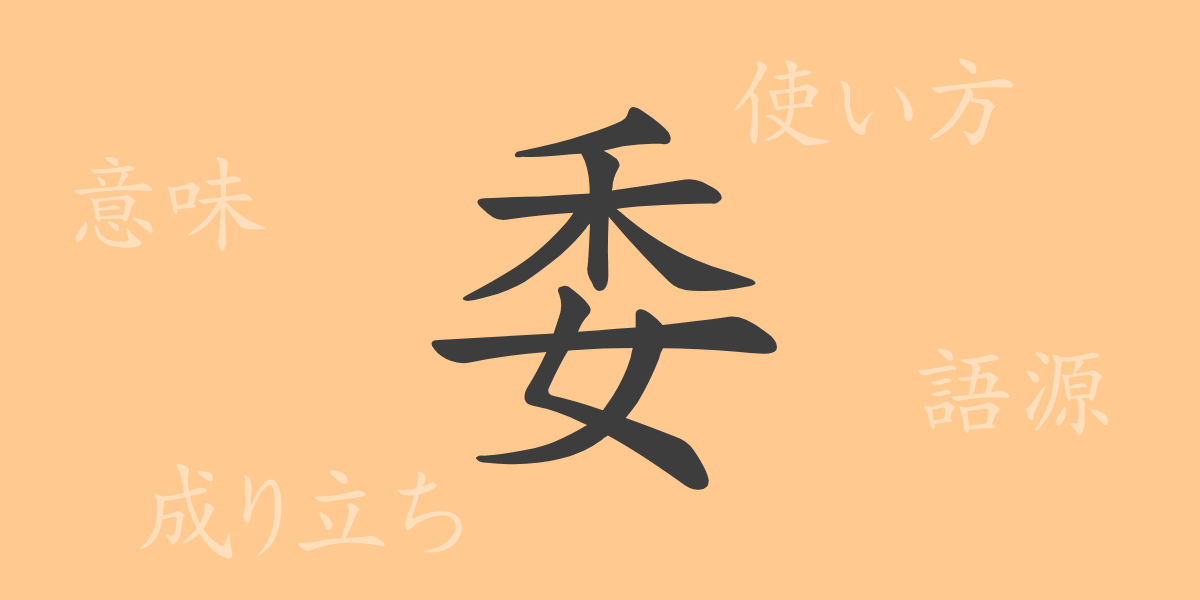“
Japanese kanji each tell a story of their own, encapsulating deep meanings and histories that reflect the country’s culture and linguistic complexity. This article delves into the kanji ‘委’ (I), exploring its origins, meanings, usage, and even its role in idioms and proverbs, thereby unveiling the beauty and intricacies of Japanese language through the character ‘委’.
Origins of 委 (I)
The kanji ‘委’ evolved from ancient Chinese pictographs, originally depicting a person bending down to place something on the ground. This action gradually came to symbolize ‘entrusting’ or ‘committing,’ leading to the current use of ‘委’. Today, it is an integral kanji used across various contexts in Japan.
Meaning and Usage of 委
‘委’ primarily means ‘to entrust’ or ‘to commit.’ It can also convey thoroughness or completeness in contexts such as ‘detailed’ or ‘fully.’ Commonly used in terms like ‘委任’ (delegation) or ‘委細’ (details), ‘委’ appears frequently in both casual conversations and formal business settings, adapting to a wide range of situations.
Readings, Stroke Count, and Radical of 委
The kanji ‘委’ is essential in Japanese, offering multiple readings and rich structural details:
- Readings: On’yomi (Sino-Japanese reading) ‘I’, Kun’yomi (native Japanese readings) ‘Yuda-neru’
- Stroke Count: 8 strokes
- Radical: 女 (Onnahen)
Phrases, Idioms, and Proverbs Involving 委
The use of ‘委’ in various phrases and idioms enriches the Japanese language. For example, ‘委託’ (commission) refers to entrusting someone with a task, while ‘委細’ (details) describes intricate details or circumstances. The verb ‘委ねる’ implies entrusting someone with complete trust. Proverbially, ‘委にかかわる’ suggests deeply involving oneself in something, highlighting the nuanced usage of ‘委’ in everyday language.
Summary of 委
The kanji ‘委’ embodies a spectrum of meanings and uses from its formation to contemporary times. Frequently utilized to express trust and responsibility in Japanese, it plays a crucial role in enhancing linguistic expression. Understanding ‘委’ not only deepens one’s grasp of Japanese but also offers insights into Japanese culture and thought processes. Studying the meanings embedded in a single kanji character can be seen as an homage to the culture and history behind the language.
“

























